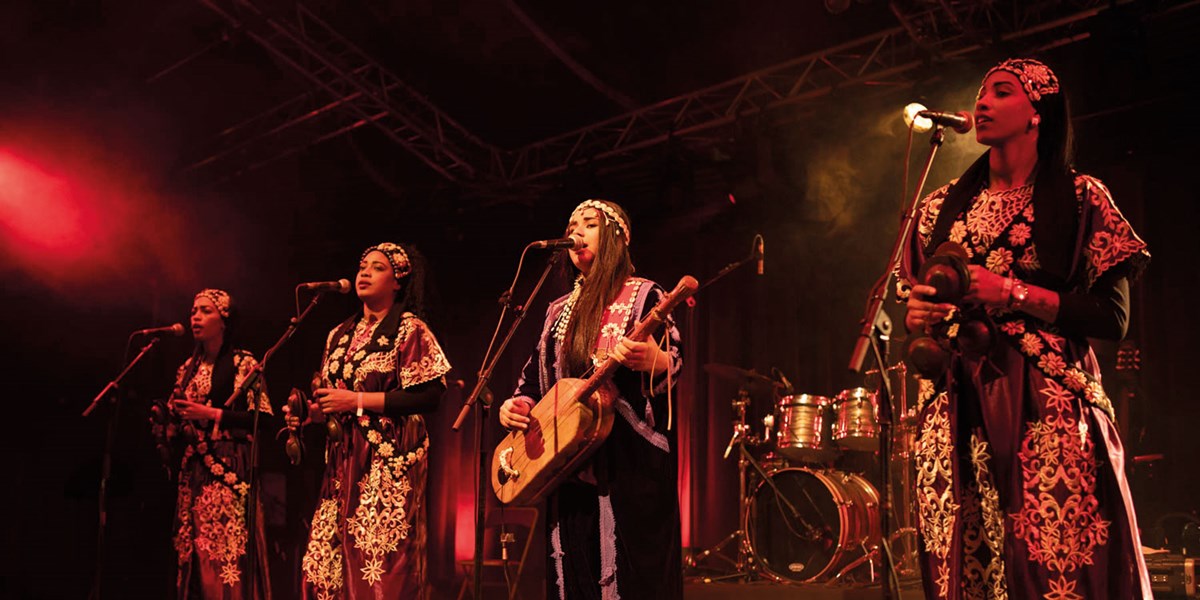Monday, February 10, 2020
Introducing... Asmâa Hamzaoui & Bnat Timbouktou
By Jo Frost
The young Moroccan musician tells Jo Frost how she’s realised her early childhood dreams by fronting her own Gnawa band

(photo: Chris Saunders)

Register now to continue reading

Thanks for visiting the Songlines website, your guide to an extraordinary world of music and culture. Sign up for a free account now to enjoy:
- Free access to 2 subscriber-only articles and album reviews every month
- Unlimited access to our news and awards pages
- Our regular email newsletters

